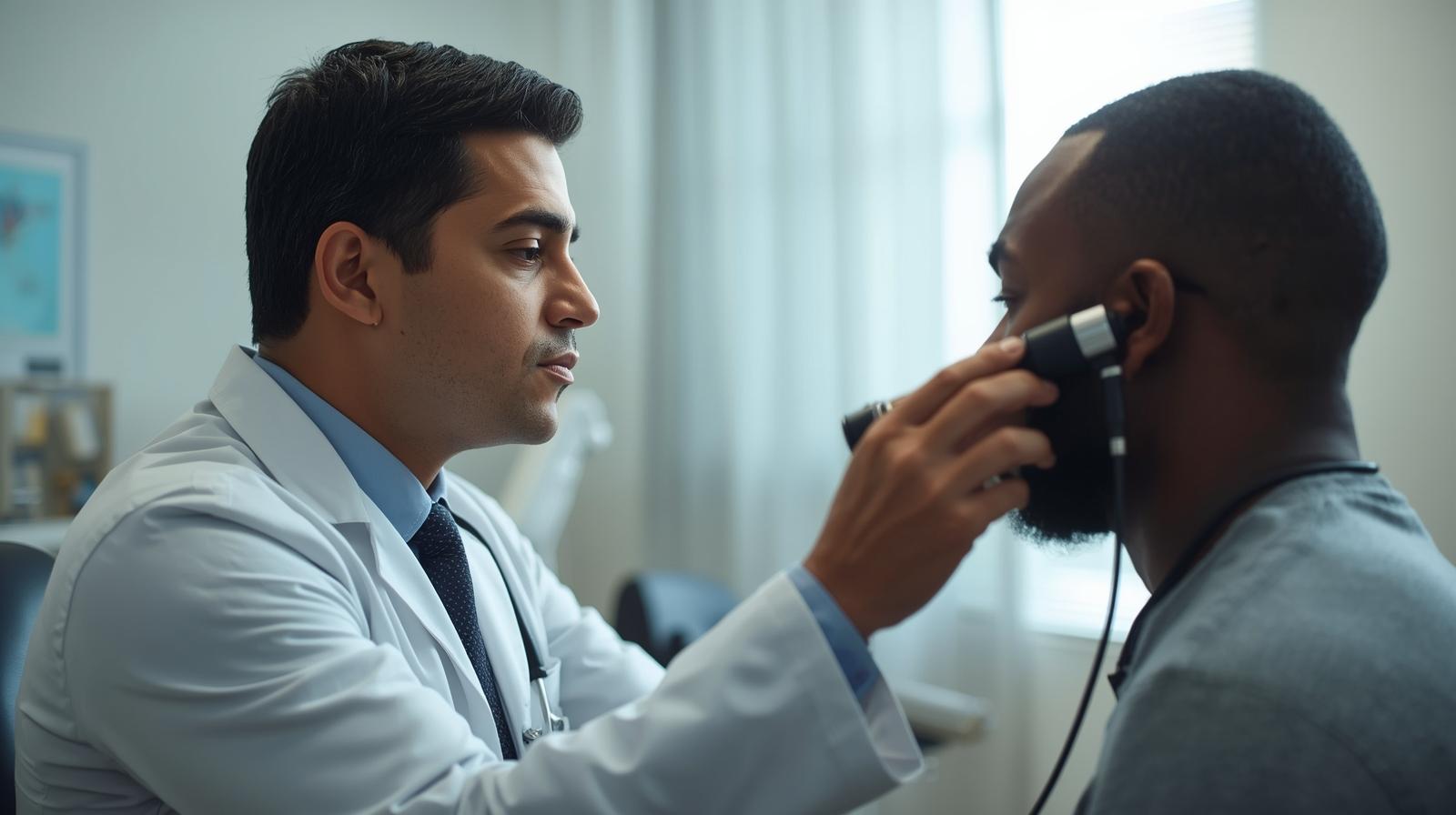
Hearing: How It Works, Why It Matters, and How to Protect It for Life
Introduction
Hearing is one of our five essential senses, yet we often take it for granted until we start to lose it. From the joyful laughter of friends and family to the soothing sounds of nature, hearing helps us connect with the world around us. It’s also crucial for our safety, learning, and emotional health.
Sadly, over 1.5 billion people around the globe experience some level of hearing loss, and nearly half of those cases could have been prevented. Understanding how our hearing works, what can harm it, and how to take care of it is vital for maintaining healthy ears throughout our lives.
How Hearing Works: A Simple Breakdown
Hearing is a fascinating process that transforms sound waves into signals our brain can understand. It involves three main parts of the ear:
1. Outer Ear
The outer part of your ear, called the pinna, catches sound waves and directs them through the ear canal to the eardrum. When sound waves hit the eardrum, it vibrates.
2. Middle Ear
Behind the eardrum are three tiny bones known as the ossicles—the malleus (hammer), incus (anvil), and stapes (stirrup). These bones amplify the vibrations and pass them along to the inner ear.
3. Inner Ear
The cochlea, a spiral-shaped structure filled with fluid and sensory hair cells, converts these vibrations into electrical signals. These signals travel through the auditory nerve to the brain, where we interpret them as sounds—like speech, music, or nature sounds.
This communication between our ears and brain happens almost instantly, allowing us to react quickly to what’s happening around us.
Types of Hearing Loss
Hearing loss can vary greatly from person to person, ranging from mild to profound, and it can happen at any age. Here are the three main types:
1. Conductive Hearing Loss
– This occurs when sound struggles to travel through the outer or middle ear.
– Common causes include earwax buildup, fluid in the ear, infections, or damage to the eardrum.
– Often treatable with medication or surgery.
2. Sensorineural Hearing Loss
– This type happens due to damage to the inner ear (cochlea) or the auditory nerve.
– Causes can include aging, exposure to loud noises, or certain medications.
– Usually permanent, but hearing aids or cochlear implants can help.
3. Mixed Hearing Loss
– This is a combination of conductive and sensorineural hearing loss.
– It requires a thorough evaluation by an audiologist.
Common Causes of Hearing Problems
Several factors can affect our hearing, including:
– Noise Exposure: Listening to loud music, working in noisy environments, or attending concerts without ear protection.
– Aging: The natural wear and tear of the inner ear hair cells (known as presbycusis).
– Ear Infections: Frequent infections can lead to fluid buildup and damage.
– Ototoxic Drugs: Some medications, like certain antibiotics or chemotherapy drugs, can harm hearing.
– Genetics: Inherited conditions that affect hearing.
– Head Injuries or Trauma: Physical damage can impact hearing.
– Lifestyle Factors: Smoking and poor heart health can reduce blood flow to the ears.
Warning Signs of Hearing Loss
Many people don’t realize they have hearing loss until it’s quite advanced. Keep an eye out for these early warning signs:
– Frequently asking others to repeat themselves.
– Difficulty understanding speech in noisy environments.
– Turning up the volume on the TV or phone.
– Feeling like people are mumbling.
– Avoiding conversations or social situations.
– Experiencing ringing, buzzing, or humming in the ears (known as tinnitus).
If you notice any of these symptoms, it’s a good idea to schedule a hearing test with an audiologist or ear specialist.
Why Hearing Health Matters
Hearing is about more than just sound; it’s about connection, confidence, and overall quality of life. Research shows that untreated hearing loss can lead to:
– Social isolation and depression.
– Declines in memory and cognitive function.
– Increased risk of accidents (like missing alarms or traffic).
– Decreased work performance and income.
Taking care of your hearing is essential for better communication, emotional health, and a longer life.
Tips to Protect Your Hearing
Protecting your hearing is easier than you might think. Here are some simple tips to keep your ears healthy:
1. Lower the Volume: Stick to the 60/60 rule: listen at no more than 60% volume for no longer than 60 minutes at a time.
2. Use Ear Protection: Wear earplugs or earmuffs in loud environments, like concerts or factories.
3. Limit Noise Exposure: Take breaks from noisy places to give your ears a rest.
4. Avoid Inserting Objects: Never use cotton swabs or sharp objects in your ears; they can push wax deeper or damage the eardrum.
5. Manage Earwax Safely: Use ear drops or see a doctor instead of trying to clean your ears yourself.
6. Live a Healthy Lifestyle: Good nutrition, staying hydrated, and regular exercise improve blood flow to your ears.
7. Schedule Hearing Checkups: Annual hearing tests can help catch any changes early.
8. Quit Smoking: Nicotine can restrict blood flow to the inner ear, speeding up hearing loss.
Modern Treatments and Support Options
If you do experience hearing loss, there’s no need to worry, there are many excellent solutions available today:
– Hearing Aids: Small electronic devices that amplify sound, available in various styles like behind-the-ear (BTE) or in-the-ear (ITE).
– Cochlear Implants: For severe hearing loss, these implants bypass damaged hair cells and directly stimulate the auditory nerve.
– Assistive Listening Devices (ALDs): Tools that help improve hearing in specific situations, such as watching TV or talking on the phone.
– Auditory Rehabilitation: Programs that help people adjust to hearing aids and enhance listening skills.
– Medical or Surgical Treatments: For conductive hearing loss, procedures like wax removal or eardrum repair can restore hearing.
Consulting an ENT doctor (Otolaryngologist) or Audiologist can help you find the best option for your needs.
The Future of Hearing Health
Advancements in technology are making hearing care more effective and accessible than ever. Some exciting trends include:
– AI-Powered Hearing Aids: Devices that automatically adjust to different environments.
– Teleaudiology: Remote hearing tests and consultations.
– Gene Therapy and Stem Cell Research: Potential treatments that may restore damaged hair cells.
– Smartphone Apps: Tools that track hearing health and detect early warning signs.
The future of hearing care is becoming more personalized and proactive.
Conclusion
Your hearing is a precious gift, it connects you to people, experiences, and the world around you. Once it’s damaged, it’s often difficult to fully restore, which is why prevention is so important.
Take care of your ears just as you would your eyes or heart. Get regular hearing tests, protect your ears from loud noises, and seek medical advice if you notice any changes.
Remember: Healthy hearing leads to a richer, more fulfilling life.



